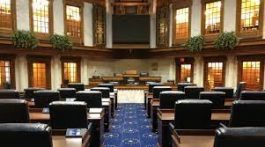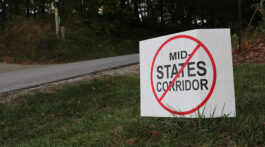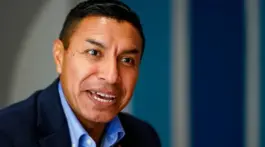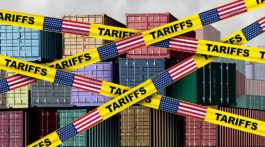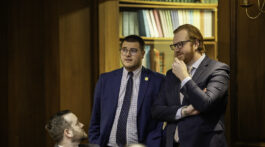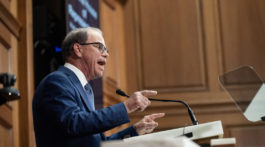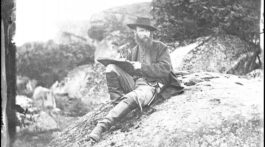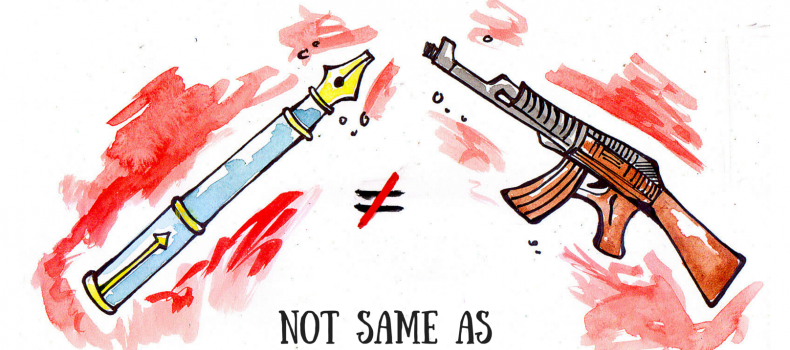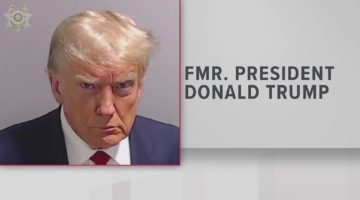By Abdul-Hakim Shabazz
Editor & Publisher, IndyPolitics.org
It’s fitting that this column lands on Veterans Day weekend—a time to honor those who’ve defended our freedoms, including one that sits at the heart of my profession: the freedom of speech and the freedom of the press.
But as any veteran of democracy can tell you, freedom isn’t a blank check. It’s a responsibility. It demands judgment, discipline, and the ability to tell the difference between legitimate criticism and reckless personal attack. That difference matters now more than ever, especially inside the walls of our own Indiana Statehouse.
Here’s why.
In recent weeks, John Schmitz, a self-styled political commentator and talk-show host, was issued a Statehouse media credential—the same credential granted to legitimate reporters who cover government for a living. The problem? Mr. Schmitz is currently a defendant in an active defamation lawsuit I filed earlier this year after a series of false statements he made about me, both online and on his own program.
Those statements didn’t just cross a line—they erased it.
On a recent broadcast, Schmitz claimed that it “took me three tries to pass the Illinois Bar Exam.” That’s not only false, it’s defamatory, because it directly attacks my competence and professional integrity as an attorney. Passing—or not passing—a bar exam is the most basic measure of qualification in the legal field. Suggesting that a lawyer repeatedly failed is a textbook example of defamation per se, because it harms a person in their profession without needing to prove special damages.
It’s also an impossible claim to verify, because bar-exam records are confidential. The Illinois Board of Admissions to the Bar does not release individual scores or histories. Even if Schmitz’s statement were true—and it isn’t—there is no lawful way he could have known it. Which tells you everything about his intent.
That falsehood was followed by an incident I documented in court: an in-person comment at last Wednesday’s Downtown GOP Club at The Dugout on Fletcher Avenue, where Schmitz told me that “things would not end well” for me. I filed a Notice of Intimidating Conduct with the Marion Superior Court the same evening, as any responsible litigant would.
Days later, Schmitz went back on air and doubled down, saying, “Abdul, your day is coming.”
Think about that. A man who has made threats, published falsehoods, and is currently being sued for defamation now has credentialed press access to the Indiana General Assembly—an institution that, as most people know, meets during the day. So the masonry business must be doing pretty well if he can take weeks off to hang out in committee hearings. Which, come to think of it, probably bodes well for my eventual damages request. (Just kidding. Or am I?)
And that’s where this story stops being personal and starts being institutional.
Because the question isn’t just whether Abdul-Hakim Shabazz is being defamed—it’s whether the public’s right to truthful, independent journalism is being undermined by people who treat “media” as a weapon, not a watchdog. When credentials become political trophies instead of professional designations, the system itself is weakened.
The Statehouse press corps is a vital part of Indiana’s civic infrastructure. The reporters who cover state government—left, right, and center—ask hard questions, verify facts, and give the public information it can actually use. They hold elected officials accountable and, at their best, help keep the rest of us honest.
The vast majority of Indiana journalists I know take that responsibility seriously. They fact-check, they challenge, and yes, they sometimes make me grit my teeth—just like I’m sure I do to them. But they operate within a framework of truth and accountability. When someone hijacks that framework to spread lies under the banner of “press freedom,” they aren’t journalists—they’re agitators with better parking privileges.
I’ve notified the appropriate parties—Mr. Schmitz’s counsel, as well as Statehouse leadership and communications officials. Not to play politics, but to preserve decorum and safety inside a building where public servants and working reporters do their jobs.
I don’t take threats lightly, and I don’t let falsehoods stand unchallenged. But I also don’t believe in silencing people. The courts exist for a reason, and I’ll continue to trust them to do their job. That’s what accountability looks like—not a war of words on Facebook, but a legal process rooted in evidence and law.
Veterans Day reminds us that our freedoms were earned through service, not slogans. The same is true for journalism. You don’t get credibility because you print a badge; you earn it by telling the truth, taking the hits, and owning your words.
And as someone once said, with great power comes great responsibility.
Abdul-Hakim Shabazz is an attorney licensed in both Indiana and Illinois and the editor and publisher of IndyPolitics.org.



